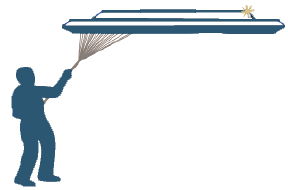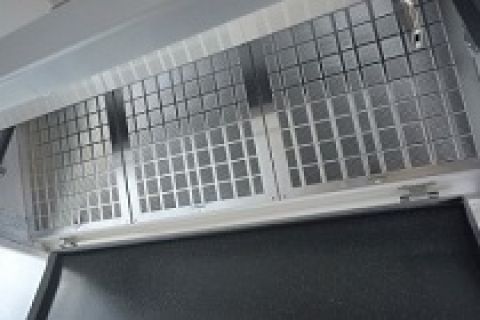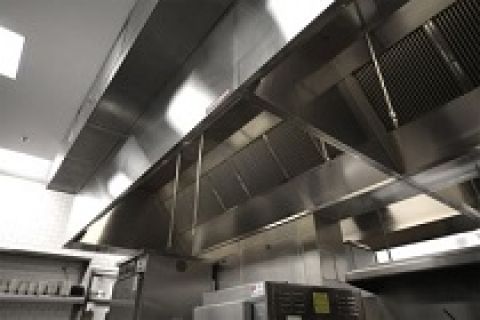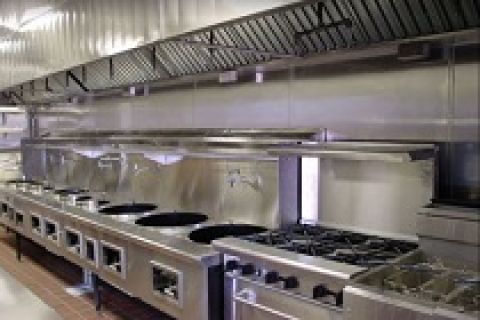Why Grease Management Is Critical for Multi-Location Restaurant Chains
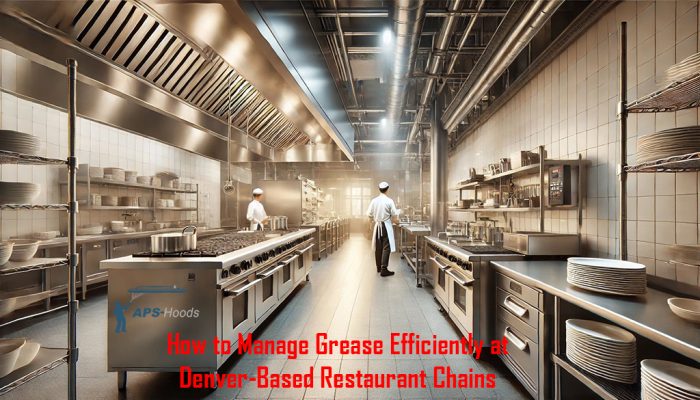
Managing fats, oils, and grease (FOG) is a major challenge for any restaurant, but it becomes even more complex when you’re operating multiple locations. Grease buildup doesn’t just create unpleasant odors or plumbing blockages—it can also compromise kitchen safety, strain HVAC systems, and inflate operational costs. For chain restaurants, these issues multiply across different cities, counties, or states, each with its own regulations and environmental considerations.
Most multi-location chains rely on standardized cleaning and maintenance protocols to streamline operations and reduce costs. However, local factors—like specific health codes, weather conditions, and waste-disposal guidelines—can disrupt a one-size-fits-all approach. It’s vital to develop a grease management plan that balances uniformity with location-specific adaptations, ensuring compliance and safeguarding your brand’s reputation.
In this guide, we’ll explore key strategies for effectively handling FOG across various sites, including best practices for grease traps, recycling, and regular equipment inspections. By proactively managing grease, you’ll not only protect customer satisfaction and comply with local regulations but also prevent costly damage to your kitchen and HVAC systems.
Keep Your Kitchen Safe and Efficient
Don’t let grease traps cause expensive backups or unpleasant odors. Call APS-Hoods today at 800-750-7313 for professional cleaning, maintenance, and installation services. Request your FREE QUOTE and ensure every location in your restaurant chain remains customer-ready.Understanding Grease Management in Multi-Location Restaurants
Managing grease effectively is a core component of restaurant maintenance. However, the complexity increases significantly when you operate in multiple cities, counties, or states—each with its own regulations and environmental standards. On top of that, varying weather conditions and differences in available equipment can affect how fats, oils, and grease (FOG) are stored, disposed of, and recycled. Failure to adapt to these local factors can lead to costly fines, equipment breakdowns, and reputational harm.
Below are the primary considerations for successful FOG management across multiple locations:
- Grease Collection & Storage
- Different municipalities may require specific types of containers or storage methods.
- Proper labeling and secure, leak-proof containers help prevent spills and ensure regulatory compliance.
- Disposal & Recycling
- Some regions encourage—or mandate—recycling waste grease for biodiesel or other sustainable purposes.
- Always follow local guidelines for grease disposal to avoid environmental harm and hefty penalties.
- Regular Maintenance
- Schedule routine cleanings and inspections for grease traps and interceptors based on each location’s volume and local ordinances.
- Partner with reputable service providers who understand your region’s unique challenges and codes.
- Equipment Upkeep
- Grease buildup can damage or reduce the efficiency of your HVAC and exhaust systems, potentially causing fire hazards.
- Upgrading outdated equipment and performing regular checks are essential to minimize downtime and repair costs.
- Compliance & Regulations
- Regulations vary by state, county, and even neighborhood, so ensure each location meets its specific requirements for grease handling.
- Failure to comply can result in citations, fines, or forced closures.
- Environmental Impacts
- Improper FOG disposal can contaminate local waterways and damage ecosystems, leading to fines and negative publicity.
- Sustainable disposal and recycling practices not only protect the environment but also enhance your brand image.
For additional insights into nationwide standards, consult the National Pretreatment Program – Controlling Fats, Oils, and Grease Discharges from Food Service Establishments. By tailoring your grease management strategy to the unique demands of each location—and staying informed about changing regulations—you’ll maintain compliance, protect your equipment, and keep customers safe and satisfied.
Overview of Denver Regulations for Grease Disposal in Restaurants
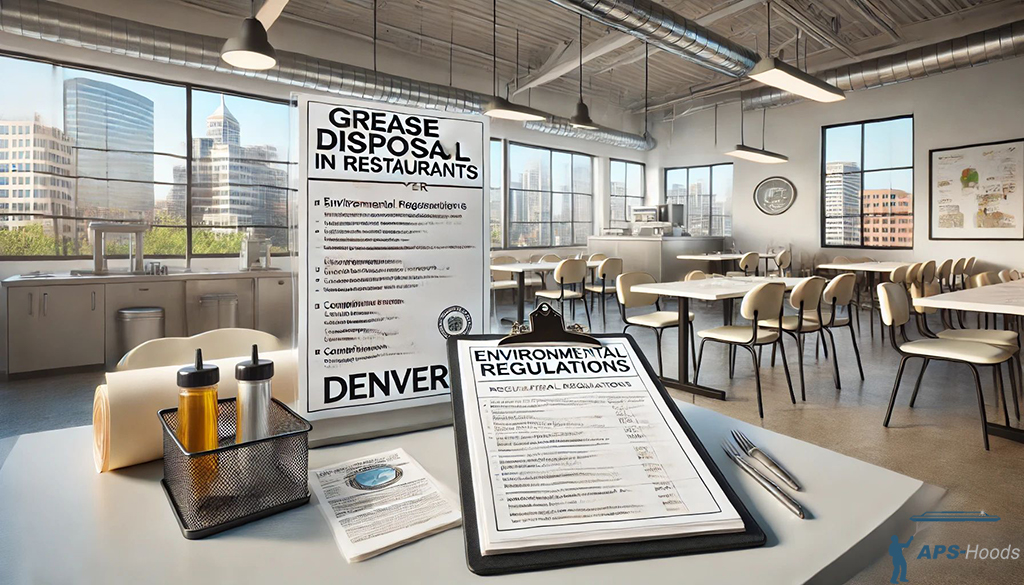
Denver’s approach to grease disposal balances strict environmental oversight with practical guidelines, making compliance crucial for any food service establishment—especially multi-location chains. By following local rules on grease traps, interceptors, and waste disposal, you safeguard your kitchen’s operations and avoid fines or shutdowns. Below are some key points to keep in mind:
- Mandatory Grease Interceptors & Regular Maintenance
- City ordinances require installing and properly maintaining grease interceptors.
- Neglecting routine upkeep can result in penalties, increased cleanup costs, and potential health code violations.
- Proper Grease Collection & Disposal
- Restaurants must collect, store, and dispose of fats, oils, and grease (FOG) following Denver’s specific waste-management guidelines.
- Partnering with certified waste haulers helps ensure that your disposal methods meet city standards.
- Compliance with State Environmental Requirements
- Denver’s rules align with broader Colorado mandates, which emphasize protecting natural resources, preventing sewage blockages, and reducing greenhouse gas emissions.
- Staying compliant also enhances your brand reputation and reduces liability risks.
Environmental Considerations
- Water and Soil Contamination
Improper grease disposal can pollute local waterways and harm soil quality. - Recycling
Some regulations encourage or require recycling used oils for eco-friendly initiatives like biodiesel production. - Greenhouse Gas Emissions
Disposing of FOG responsibly helps lower carbon outputs linked to decomposition or incineration. - Odor Pollution & Biodiversity
Proper grease management prevents foul odors and protects local plant and animal life, preserving Denver’s natural habitats. - Economic Burden on City Officials
Compliance reduces strain on municipal infrastructure, saving taxpayer dollars on costly emergency cleanups.
To dive deeper into official guidelines, visit the City of Denver’s website for the most up-to-date information on local regulations. By prioritizing regular maintenance, responsible disposal, and strict adherence to state and local rules, your restaurant chain can keep operations running smoothly while maintaining Denver’s environmental integrity.
How to Manage Grease Efficiently at Denver-Based Restaurant Chains
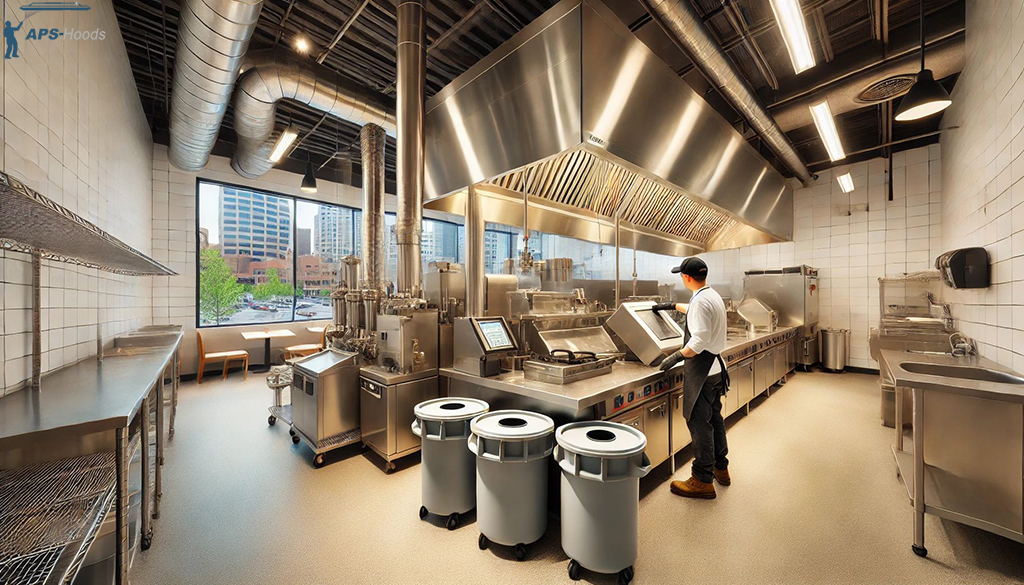
Keeping your kitchen safe and compliant requires a well-structured approach to handling fats, oils, and grease (FOG). Below is a quick-reference guide of essential Do’s and Don’ts for Denver-area restaurant owners and staff. Share this checklist in your training sessions to maintain consistency and uphold local regulations.
| Do’s | Don’ts |
| ✅ Install Proper Grease Traps & Interceptors Ensure each location has the right equipment. | ❌ Discharge Grease into Drains Dumping grease directly into sinks or sewer systems leads to clogs and violations. |
| ✅ Schedule Regular Maintenance Adhere to a routine cleaning plan for grease traps and hoods. | ❌ Ignore Maintenance Postponing upkeep can result in costly backups and safety hazards. |
| ✅ Train Your Staff Provide clear SOPs on FOG handling, disposal, and reporting. | ❌ Overfill Containers Overfilled bins are more prone to spills and environmental breaches. |
| ✅ Use Approved Storage Containers Prevent leaks and comply with Denver waste-management rules. | ❌ Flush Grease with Hot Water This only pushes clogs further down the line. |
| ✅ Hire Professional Waste Haulers Certified services ensure legal disposal and minimize risks. | ❌ Delay Reporting Issues Ignoring equipment malfunctions can escalate into fines or shutdowns. |
| ✅ Keep Detailed Records Document maintenance and disposal activities for audits and inspections. | ❌ Assume Compliance Without Verification Regular inspections by licensed experts confirm your restaurant meets local mandates. |
| ✅ Recycle Used Oil Reduce waste and support eco-friendly initiatives like biodiesel production. |
Protect Your Restaurant’s Reputation
A clean and well-maintained grease trap isn’t just about avoiding fines—it’s also key to customer safety and satisfaction. Let APS-Hoods handle the dirty work so you can focus on running your restaurant.Call us at 800-750-7313for expert cleaning, maintenance, and installation services. Request your FREE ESTIMATE today and keep every location in your chain fully compliant and operational.Frequently Asked Questions
How Does Grease Impact Kitchen Operations and Customer Satisfaction?
FOG buildup poses both safety and operational risks, such as fire hazards and poor air quality. It can also affect food taste and lead to negative customer perceptions, ultimately damaging your restaurant’s reputation.
What Challenges Are Unique to Grease Management in Multi-Location Restaurant Chains?
Varying local regulations, climate conditions, and equipment availability can complicate a uniform approach to FOG management. Additionally, internal policies must adapt to each location’s specific needs without compromising overall brand standards.
How Can Restaurants Ensure Proper Disposal and Recycling of Grease?
The most effective strategy is to partner with licensed waste haulers and grease management experts. Always adhere to local guidelines for disposal and recycling, which may include converting used oil to biodiesel or other eco-friendly products.
What Maintenance Schedules Should Be Followed for Grease Traps and Interceptors?
Maintenance frequency depends on factors like local regulations, the type of cuisine you serve, and volume of operations. In general, schedule professional cleanings quarterly or more often for high-volume kitchens.
How Does Grease Management Affect HVAC Systems in Restaurants?
Excess grease can clog and damage your HVAC and exhaust systems, leading to fire hazards, foul odors, and costly repairs. Regularly servicing kitchen hoods and vents helps maintain air quality and extends equipment lifespan.
What Are the Risks of Improper Grease Disposal for Restaurants?
Improper FOG handling can contaminate local water sources, harm wildlife, and trigger sewer blockages. Many restaurant fires are also attributed to grease buildup, making correct disposal essential for both safety and compliance.
What Should Restaurant Owners Look for When Hiring Professional Grease Haulers?
Choose licensed and insured providers who adhere to local and state regulations. Check their service record and client testimonials to ensure reliable, timely, and environmentally responsible grease removal.
How Can Restaurants Verify Compliance With Local Grease Management Regulations?
Stay updated on any changes in state or municipal guidelines, and conduct regular internal audits. Contact APS-Hoods for a free consultation call to evaluate your current practices and ensure full compliance across all locations.
Why Is Regular Maintenance Crucial for Preventing Costly Plumbing and Equipment Repairs?
Routine checkups and cleanings catch minor issues before they escalate into major breakdowns or health code violations. This proactive approach saves on repairs, minimizes downtime, and preserves your business’s good standing.
Conclusion
Grease management is a critical factor in the success and safety of any food business, especially for multi-location restaurant chains. By prioritizing scheduled maintenance, investing in modern equipment, and diligently adhering to local regulations, you’ll reduce costs, protect the environment, and uphold your brand reputation.
Stay Ahead with Regular Maintenance
Avoid unexpected downtime and expensive repairs. Schedule regular grease trap cleaning and maintenance with APS-Hoods to keep your kitchens running smoothly. Call 800-750-7313or click here for a FREE QUOTE today!Trackback from your site.
